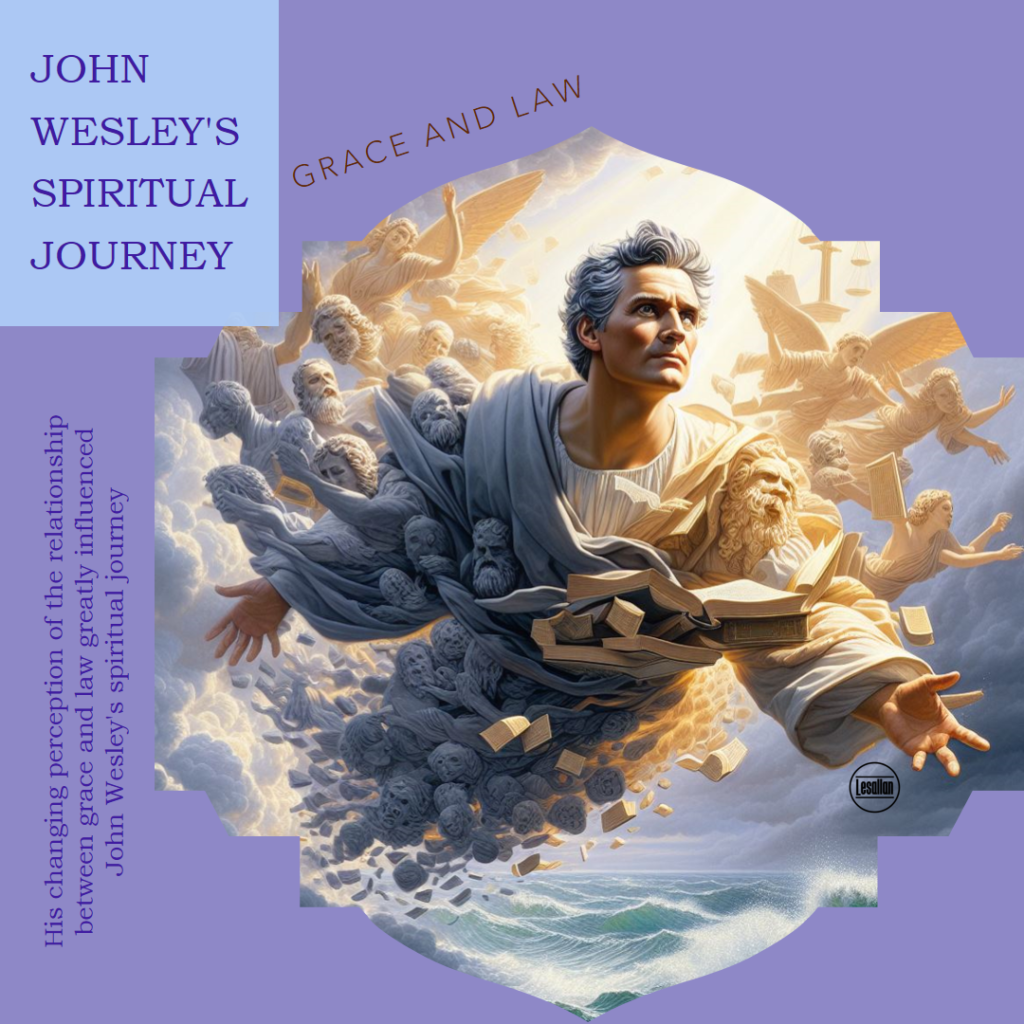Written by Lesallan – January 17, 2024

Grace and Law – John Wesley
His changing perception of the relationship between grace and law greatly influenced John Wesley’s spiritual journey. He was raised in the Anglican Church, where he was taught to prioritize moral responsibility and personal holiness. Wesley believed strict adherence to God’s law was essential for salvation and sanctification. However, his time in Georgia, where he was unable to convert the Native Americans and was involved in a legal dispute with a woman he had courted, left him feeling unworthy of God’s love (Hodges, 2014). This shattered his confidence, and he returned to England seeking a more profound sense of assurance regarding his salvation.
On May 24, 1738, Wesley had a conversion experience at a Moravian gathering on Aldersgate Street, significantly changing his understanding of grace. During the meeting, he experienced a “strange warming” in his heart and realized that faith alone, not works, was responsible for saving him. From then on, he began preaching about free grace, which he defined as “the unmerited and free love of God” (The Wesley Center Online, 1999). According to Wesley, grace not only caused salvation but also served as the means and the end of it. By enabling sinners to repent, believe, and obey God’s will, grace sanctified believers and readied them for eternal glory.
Wesley, however, did not dismiss the importance of law in the Christian life. He believed that law and grace were not in opposition but complemented one another. He stated that “The grace or love of God, which brings about our salvation, is free for everyone and free in everyone…But this does not mean that we can live however we want, or that we are free from the law” (The Wesley Center Online, 1999). Wesley unequivocally differentiated between the moral law, which is rooted in God’s character and disclosed in the Ten Commandments and the Sermon on the Mount, and the ceremonial law, which is founded on God’s agreement with Israel and annulled by Christ. He stressed that Christians are still obligated to adhere to the moral law, which is “holy, and just, and good” (Collins, 1999). For Wesley, the law served as a guide for Christian living, a means of conviction and correction, and a schoolmaster that leads to Christ.
His evolving comprehension of grace and law greatly influenced Wesley’s theological and ministerial beliefs. He emphasized justification by faith and sanctification by grace, and preached the importance of the free offer of salvation and the necessity of living a holy life. He skillfully balanced his fervent evangelicalism with a deep concern for social issues, founding societies for spiritual growth and classes for moral accountability. As a loyal member of the Anglican Church and a prominent figure in the revival movement, Wesley’s unique fusion of grace and law continues to be a defining feature of Methodism today.
Blessings,
Lesallan
References:
Collins, K. J. (1999). A Real Christian: The Life of John Wesley. Abingdon Press.
Hodges, S. (2014, July 22). Re-evaluating John Wesley’s time in Georgia. United Methodist News Service. https://www.umnews.org/en/news/re-evaluating-john-wesleys-time-in-georgia
The Wesley Center Online. (1999). The Wesley Center Online: Sermon 128 – Free Grace. Wesley.nnu.edu. http://wesley.nnu.edu/john-wesley/the-sermons-of-john-wesley-1872-edition/sermon-128-free-grace/


